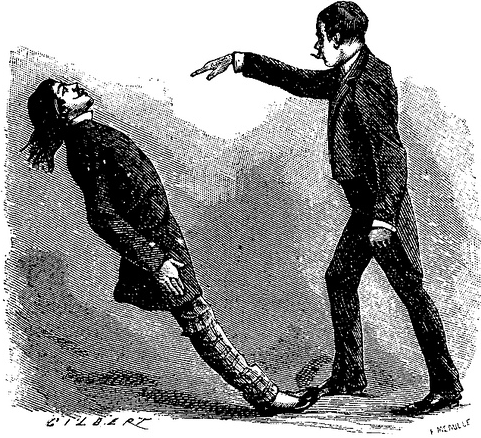(469) 232-7578


Hypnosis Myths
Hypnosis is, perhaps, one of the most controversial and misunderstood methods of psychological treatment available these days. The myths and misconceptions associated with hypnotherapy mostly come from people’s biased ideas about stage hypnotism. They don’t recognize that stage hypnotism is an entertainment performance — and far from the realities of true clinical hypnotherapy.
Well, let’s debunk some of the most common myths concerning hypnosis. Here are some of them as researched and listed by HMI — The Hypnosis Motivation Institute:
Myth #1: The Hypnotist will be able to control my mind.
Fact: No one can control your mind, unless you let them. Your Hypnotherapist will give you suggestions that you have agreed to be given, and want to be given based on your Pre-Hypnotic Interview.
Myth #2: I will be made to perform embarrassing acts, such as bark like a dog, or walk like a duck.
Fact: This assumption is based on Stage Hypnotism and Hollywood fiction. The truth is, these people volunteer to act on stage, and they allow themselves to participate in silly suggestions.
Myth #3: Hypnosis comes from “Black Magic” or is “Supernatural”.
Fact: Hypnosis is a natural state that has been studied scientifically. Hypnotherapists are not Psychics or Palm Readers with “special powers”. Hypnotherapy is based on many years of clinical research by famous Psychologists such as Dr. Sigmund Freud and Dr. Carl Jung, and more recently, by Dr. Milton Erikson and Dr. John Kappas.
Myth #4: If I become hypnotized, I may not be able to snap out of it, or hypnosis is dangerous.
Fact: Hypnosis is very safe and is in fact, a state of hyper-awareness. Any time there is an emergency, the hypnotherapist will immediately enable a person to come out of their hypnotic state.
Myth #5: I have never been in hypnosis before.
Fact: Every person naturally enters a state of hypnosis at least twice everyday: just before falling asleep at night, and upon awaking every morning, before getting out of bed. Most people easily enter ‘Environmental Hypnosis’ while at the movies, watching TV, driving on the highway, or while reading a good book.
Myth #6: Hypnosis is a “Miracle Cure”.
Fact: While Hypnosis is a relatively quick method of making permanent improvements, which often requires more than one session.
Myth #7: Hypnosis is a great tool to get someone to “confess”.
Fact: Hypnotherapy sessions are kept private and cannot be used for court testimony.
Myth #8: When Hypnotized, I will lose all sense of my surroundings, and will have no memory of the session.
Fact: hypnosis is not an unconscious state of sleep. In fact, most people report having a heightened sense of awareness, concentration and focus.
Myth #9: Self-Hypnosis is safer, better, or more effective than going to a trained professional.
Fact: Self-Hypnosis can be detrimental when not taught by a trained professional. Self hypnosis is used for ongoing issues and is taught by your hypnotherapist.
Myth #10: I can’t be hypnotized because my mind is too strong/ disciplined.
Fact: This is an archaic belief that has, in recent times, been proven untrue. Hypnosis relies on the power of intent: if you want to be hypnotized, you will be. If you don’t want to be hypnotized, you won’t be.
And here are a few more common “hypnosis myths” . . .
Myth: The hypnotist hypnotizes people.
Fact: The client hypnotizes him/herself. The hypnotist guides the client through the process.
Myth: A person can get stuck in a hypnotic state.
Fact: A person cannot get stuck in hypnosis. For example, you naturally go through a semi-hypnotic state everything you wake up and fall asleep.
Myth: The hypnotherapist can make me do things I don’t want to do, like take my clothes off or rob people.
Fact: Come on . . . seriously? First, an ethical hypnotherapist wouldn’t even ask a person to do such things in the first place. Secondly, a person has the ability to reject any suggestion that is contrary to a their morals or survival.
Myth: A person is asleep during hypnosis.
Fact: A person is totally relaxed with their eyes closed during hypnosis.
In summary:
To be successfully hypnotized, a person must want to undergo the process voluntarily. Contrary to popular opinion, people under hypnosis are still in total control of themselves. They would never do anything they would normally find highly objectionable or against their moral convictions.







(469) 232-7578

